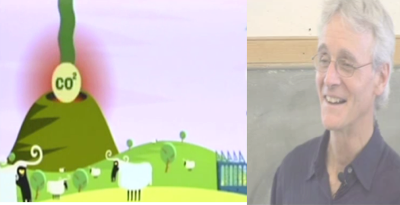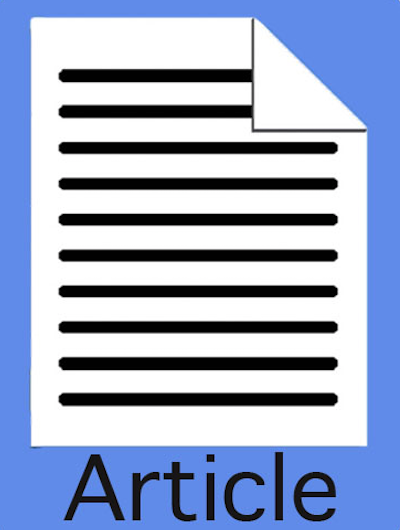Your Search Results (81) sorted by newest
What Is Causing Global Warming?
Media literacy and critical thinking lesson analyzing conflicting perspectives on the causes for global warming by decoding short excerpts from two films, The Great Global Warming Swindle and An Inconvenient Truth.
Over 60 Minutes
What is the Role of the Federal Government in Protecting the Environment?
This is a media literacy and critical thinking activity in which students analyze three short news reports for conflicting messages about the appointment of Scott Pruitt to head the Environmental Protection Agency.
15-30 Minutes
What’s in My Lunchbox?
In this media literacy activity students analyze a book cover, a lunchbox, a YouTube screen grab and a webpage for messages about eating fruits and vegetables.
15-30 Minutes
Where Does My Food Come From?
Media literacy and critical thinking lesson analyzing videos to discern messages about the production and transportation of food.
This lesson is part of a "kit" or collection of media decoding lessons on a particular topic. You can explore that kit using the link below:
Unit: Food ChoicesKit: Media Constructions of Sustainability: Upper Elementary
Over 60 Minutes
Wind Farm Site Selection: A Community Debates the Issues
This is a media literacy and critical thinking activity in which students analyze two op-eds for perspectives on siting local wind farms.
15-30 Minutes
Young People Taking Action to Protect our Warming Planet
This is a media literacy and critical thinking activity in which students analyze four short excerpts from online articles for messages about youth activism for environmental protection and social justice.
This lesson is part of a "kit" or collection of media decoding lessons on a particular topic. You can explore that kit using the link below:
Playlist: Climate Change
30-60 Minutes
Youth, Hip Hop & Climate Change
This is a media literacy and critical thinking activity in which students analyze two short hip hop music video to compare different approaches to encourage youth activism to deal with climate change.
15-30 Minutes
Briefing: Project Look Sharp's Decoding Media Constructions and Sustainability
Antonio Lopez, in his coda to Greening Media Education, summarizes the complex set of skills needed “to bring ecologically oriented cultural practice into the realm of media education (which) promotes systems thinking, collaborative learning, critical thinking, lifelong learning and digital media literacy.” This article offers cases studies of two Look Sharp lessons, one for elementary age students and another for upper level high school, each of which was designed with these skills in mind as a way to bring Lopez’s vision into practice in the classroom.
High School Science: The Great Global Warming Swindle
An example of leading a class through a constructivist media decoding using a lesson from our kit, Media Constructions of Global Warming. Students analyze a short video clip from the film The Great Global Warming Swindle, compare the information in the clip with a chart, and reflect on issues of credibility and bias in media representations and our own biases when evaluating information.
View
Constructivist Media Decoding
Critical Thinking And The News
Assessing Credibility & Bias
Science And Environment
Sustainability Education and Media Literacy
Related to kit: Media Constructions of Sustainability: Food, Water, and Agriculture
This article looks at how the topic of climate change can often provoke deep emotions in students, and suggests that instead of shying away, teachers should use media literacy activities to foster discussions of what the future holds. The author stresses the importance of connecting to the emotional lives of students when raising the complex issues around sustainability.
Download
Media Literacy Lesson Design
Youth Culture And New Technologies
Do No Harm
Question Design
Social Studies
Science And Environment
Teaching Media Literacy & Sustainability for Younger Learners
Related to kit: Media Constructions of Sustainability: Lower Elementary
This webinar offers pedagogical techniques and curriculum materials to support a deeper understanding of how to use media documents that: support content teaching about water quality, climate change and hunger, introduce media production as a way to deepen media literacy awareness, and encourage core subject integration of ELA, math, science and social studies.
View
Media Literacy And Critical Thinking Integration
Constructivist Media Decoding
Media Literacy Lesson Design
Youth Culture And New Technologies
Document Selection
Question Design
Lesson Elements
Lesson Conception
Social Studies
English Language Arts
Health
Science And Environment
Math
Media Production
Teaching about Climate Change Using the Tools of Media Literacy
This webinar offers pedagogical techniques and curriculum materials to support a deeper understanding for how to use a wide variety of media documents that: - Support content teaching about climate change - Examine media representations of global warming related to media literacy concepts of credibility, bias and impact - Encourage strong sense critical thinking by asking questions about all media messages, not just those with which we may disagree.
View
Constructivist Media Decoding
Critical Thinking And The News
Assessing Credibility & Bias
Document Selection
Question Design
Social Studies
Science And Environment
Climate Change, Biodiversity and Magazine Cover Priorities
Students analyze a webpage for messages about climate change, biodiversity and about editorial choices for magazine covers. This simple decoding activity has been taken from a larger lesson with many slides titled “History of Endangered Species." To access this lesson, type the title with quotes into the PLS keyword search bar.
Under 15 Minutes
"It Takes Roots to Weather the Storm", Climate Justice Poster
Students analyze a poster for messages about climate justice activism and about implicit values in media messages. This simple decoding activity has been taken from a larger lesson with many slides titled “Merging Social Justice with Environmentalism." To access this lesson, type the title with quotes into the PLS keyword search bar.
Under 15 Minutes
"Puerto Rico Devastated From Hurricane Maria" Webpage
Students analyze a webpage for messages about the impacts of hurricane Maria on Puerto Rico and about image choices for audience impact. This simple decoding activity has been taken from a larger lesson with many slides titled “Merging Social Justice with Environmentalism." To access this lesson, type the title with quotes into the PLS keyword search bar.
Under 15 Minutes
Community Organizing for Environmental Justice
Students analyze a webpage for messages about community building for social justice and about website design choices. This simple decoding activity has been taken from a larger lesson with many slides titled “Merging Social Justice with Environmentalism." To access this lesson, type the title with quotes into the PLS keyword search bar.
Under 15 Minutes
"Uneven Katrina Recovery" News Article
Students analyze a news article for messages about race and the recovery from Hurricane Katrina and about website design choices. This simple decoding activity has been taken from a larger lesson with many slides titled “Merging Social Justice with Environmentalism." To access this lesson, type the title with quotes into the PLS keyword search bar.
Under 15 Minutes
Race, Place & Environmental Justice After Hurricane Katrina
Students analyze a book cover for messages about race and the impacts of Hurricane Katrina and about title and imagery in book cover choices. This simple decoding activity has been taken from a larger lesson with many slides titled “Merging Social Justice with Environmentalism." To access this lesson, type the title with quotes into the PLS keyword search bar.
Under 15 Minutes
1968 Humphrey "Some Talk Change" Poster
Media literacy and critical thinking activity analyzing a poster for the Humphrey campaign for messages about target audience.
This lesson is part of a "kit" or collection of media decoding lessons on a particular topic. You can explore that kit using the link below:
Unit: 1968-1972 A Nation in CrisisKit: Media Constructions of Presidential Campaigns
Under 15 Minutes
1932 "Don't Change Now" Poster
Media literacy and critical thinking activity analyzing a poster from the 1932 campaign for Herbert Hoover for messages about candidate imagery.
This lesson is part of a "kit" or collection of media decoding lessons on a particular topic. You can explore that kit using the link below:
Unit: 1932-1944 The Personal PresidencyKit: Media Constructions of Presidential Campaigns
Under 15 Minutes



















